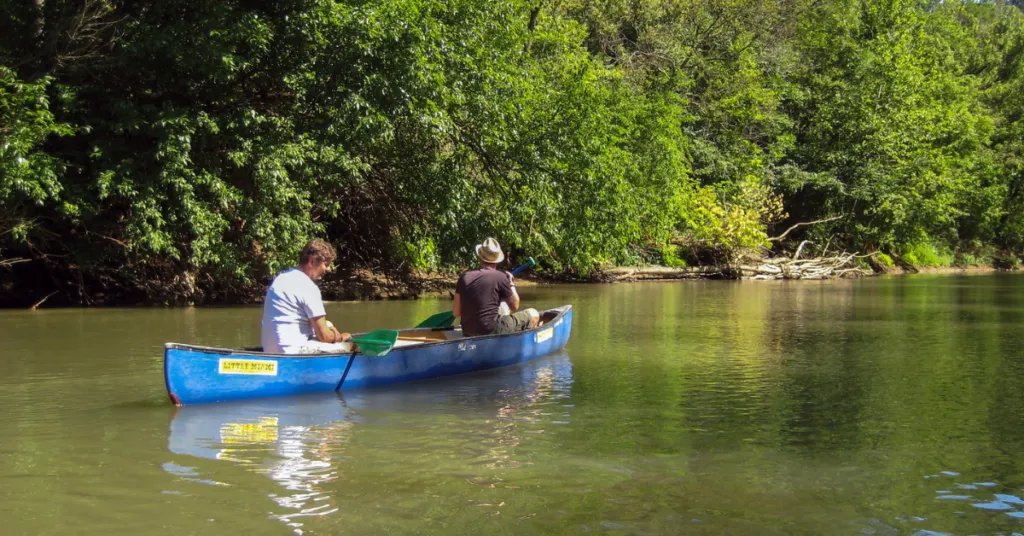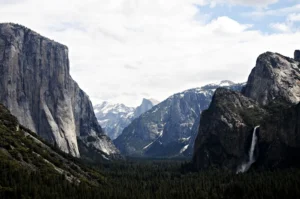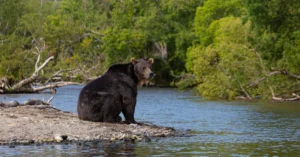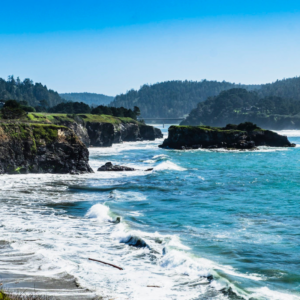Ecotourism is important for wildlife conservation. It offers a responsible way to travel, focusing on preserving natural habitats and respecting local cultures. The importance of ecotourism in maintaining biodiversity and supporting local economies is significant.
Ecotourism aims to protect ecosystems while supporting local communities. The demand for sustainable travel is increasing worldwide. Ecotourism stands out in promoting environmental stewardship. It helps maintain biodiversity.
These benefits are linked to conservation efforts. This article explores ecotourism’s definition. It assesses its impact on ecosystems and local communities. This travel form also underscores the role of ecotourism in promoting sustainable use of resources.
The article also introduces activities that reflect ecotourism’s principles, each contributing significantly to ecotourism in wildlife conservation. These activities are essential in highlighting the role of ecotourism in environmental and cultural preservation.
What Is Ecotourism?
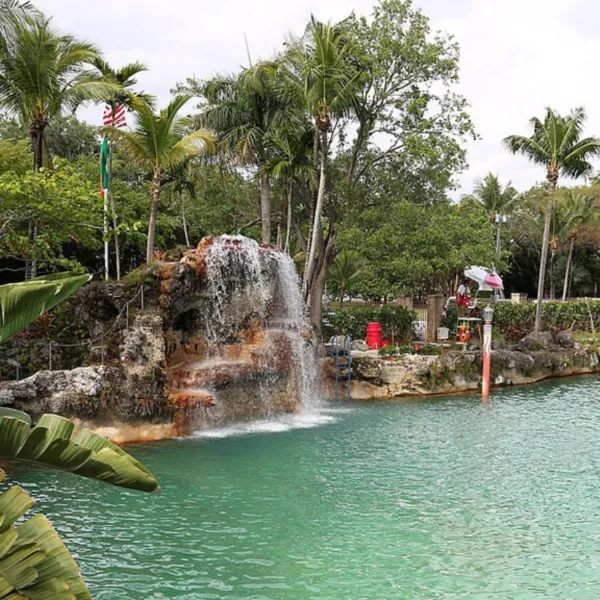
Ecotourism promotes travel to natural areas, focusing on environmental conservation and supporting local communities. This form of tourism minimizes impact on the environment and encourages activities that aid conservation efforts.
Ecotourists contribute to the local economy without harming natural resources. Core principles include reducing physical, social, behavioral, and psychological impacts on visited environments.
Ecotourism’s goals are to educate travelers, fund ecological conservation, enhance local economic development, empower political structures, and foster respect for diverse cultures and human rights.
By adhering to these principles, ecotourism helps protect natural habitats and supports local communities, driving positive change and sustainable travel. This emphasizes the importance of ecotourism to accomplish global sustainability objectives.
How Does Ecotourism Benefit Local Communities?
Ecotourism provides significant and multifaceted benefits to local communities:
- Economic Growth: Ecotourism generates jobs. It boosts local economies through sustainable tourism activities. It often offers higher wages compared to traditional sectors like agriculture. Local services and products gain increased demand, enhancing business opportunities.
- Cultural Preservation: Ecotourism helps preserve local cultures. It integrates cultural experiences into its offerings. This maintains local traditions. It boosts pride among community members. Local artisans and cultural practitioners find new audiences.
- Infrastructure Development: Ecotourism often leads to improved infrastructure. Better roads and conservation facilities are common developments. These improvements support both tourism and local needs.
- Education Opportunities: Ecotourism expands educational prospects. Museums, cultural centers, and conservation programs multiply. These initiatives educate both tourists and locals. They promote a deeper understanding of the natural environment.
- Environmental Conservation: Ecotourism encourages protecting natural environments. It supports projects that preserve local wildlife and habitats. Communities learn sustainable practices, critical to ecotourism in wildlife conservation.
- Community Empowerment: Ecotourism involves local people in decision-making. This empowers communities. It improves governance and ensures tourism benefits everyone.
- Global Connections: Ecotourism creates international links. Locals interact with tourists from around the world. This exchange enriches local communities culturally and intellectually.
- Conservation Funding: Tourism revenue helps fund conservation projects. These funds are crucial for maintaining local natural resources.
What Are the Positive Impacts of Ecotourism?
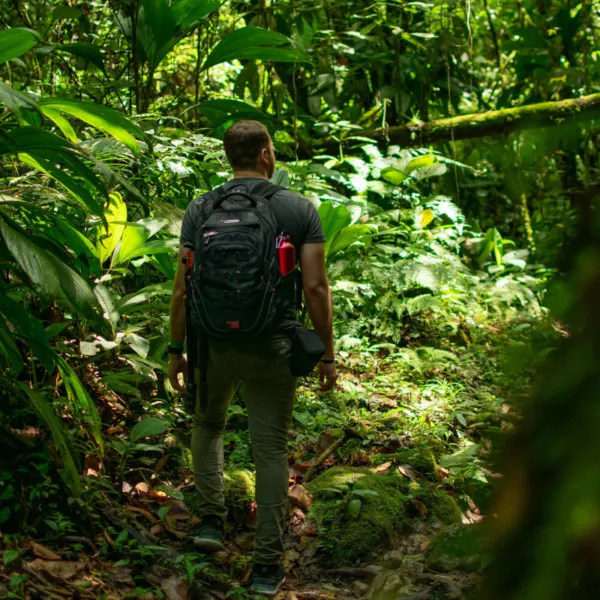
A. Conservation Funding
Ecotourism provides crucial financial support for environmental conservation. Revenues from entrance fees, licenses, and accommodations fund wildlife preservation and landscape protection. This financial input sustains local conservation projects and helps manage protected areas.
B. Environmental Awareness
Ecotourism raises environmental consciousness among tourists. Through educational programs and direct experiences, visitors learn about ecological issues and conservation needs. This awareness fosters responsible travel behaviors and a deeper appreciation for nature.
C. Local Economic Benefits
Ecotourism significantly boosts local economies by creating jobs and increasing demand for local products and services. This economic stimulation helps improve the standard of living for community members, providing them with more stable income sources and reducing dependency on unsustainable practices.
What Are the Negative Impacts of Ecotourism?
A. Environmental Degradation
If poorly managed, ecotourism can lead to habitat destruction, wildlife disturbances, and pollution. It’s crucial to enforce environmental guidelines, limit visitor numbers, and use eco-friendly infrastructure to minimize these adverse effects and ensure sustainable tourism practices.
B. Cultural Disruption
The influx of tourists can sometimes erode local traditions and lifestyles. Ensuring tourism development is respectful and beneficial to local cultures is essential. Engaging community members in tourism planning and promoting cultural sensitivity among tourists can mitigate these disruptions and help maintain cultural integrity.
C. Resource Strain
Increased tourism can strain local resources like water and energy. It’s important for ecotourism operations to implement resource management strategies, such as using renewable energy sources and water-saving practices, to prevent overuse of local resources and ensure that tourism does not negatively impact community resource availability.
How Can Ecotourism Be Practiced Sustainably?

Practicing sustainable ecotourism involves a series of deliberate actions and thoughtful considerations to ensure that tourism supports environmental conservation. Here’s how it can be achieved effectively:
- Research and Planning: Before visiting, tourists should conduct comprehensive research to understand the environmental and social context of their destination. This ensures their activities align with ecotourism principles, such as minimizing environmental impact and enhancing community welfare.
- Sustainable Practices: Both tourists and tour operators must adopt practices that conserve natural resources. This includes using water and energy efficiently, minimizing waste production, and selecting locally sourced products to reduce carbon footprints. Simple actions, like avoiding single-use plastics and participating in clean-up activities, can significantly impact.
- Community Engagement: Sustainable ecotourism thrives on the active involvement of local communities. By integrating local residents in the planning and decision-making processes, ecotourism projects can tailor their activities to benefit, rather than exploit, the local context.
- Education and Awareness: Educating tourists about the local environment, culture, and sustainability issues is vital. Knowledgeable tourists are more likely to respect their surroundings and make positive contributions during their visit.
- Support for Conservation Efforts: Tourists should support and engage in ongoing conservation efforts. This can involve participating in wildlife monitoring programs, contributing to conservation funds, or learning about biodiversity through guided tours with knowledgeable local guides.
What Are the Best Practices for Engaging in Ecotourism?
Responsible ecotourism is about making informed and respectful choices:
- Ethical Considerations: Tourists should choose accommodations and tour operators that hold eco-certifications from recognized sustainable tourism organizations. These certifications are a testament to the operators’ commitment to adhering to environmental and ethical standards.
- Cultural Sensitivity: Respecting and understanding the customs, traditions, and norms of host communities are crucial in ecotourism. Tourists should strive to engage with local cultures thoughtfully. This includes listening to local narratives, participating in traditional activities appropriately, and learning from the indigenous knowledge systems.
- Environmental Impact: Tourists should minimize their ecological footprint by practicing behaviors such as recycling, conserving water and energy, and avoiding activities that harm the local environment. Using public transport, walking, or cycling when exploring the area can significantly reduce carbon emissions.
- Support Local Economies: Choosing locally owned businesses for services like dining and shopping can have a positive economic impact on the community. This practice supports local artisans and farmers, contributing to the community’s economic resilience.
- Educate Others: Sharing experiences and knowledge about the principles of ecotourism with others can amplify the positive impacts. By educating friends and family about sustainable travel practices, tourists can help spread awareness and encourage more people to adopt ecotourism principles.
What Are Different Ecotourism Activities?
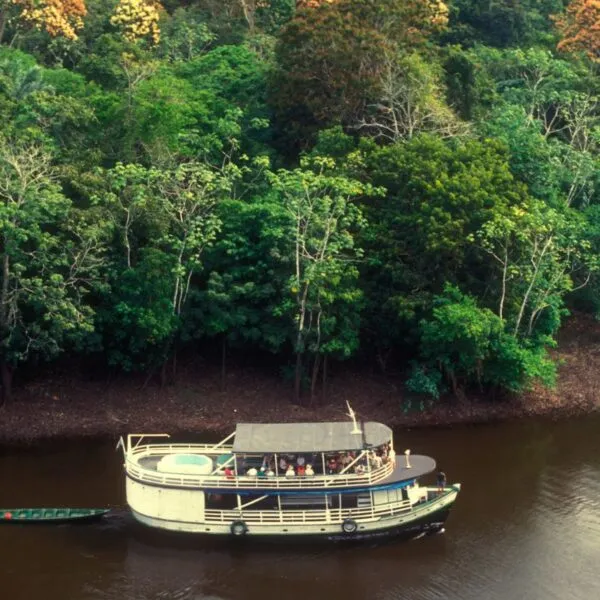
Ecotourism offers a variety of activities designed to minimize environmental impact and enhance conservation efforts:
- Wildlife Safaris: These are conducted responsibly to avoid disturbing the natural habitat while offering visitors educational insights into local wildlife behaviors and ecosystems. Safaris support conservation by funneling part of their proceeds into wildlife protection initiatives and providing a non-invasive way to experience nature.
- Voluntourism: This involves tourists actively participating in conservation efforts, such as tree planting, wildlife monitoring, and beach clean-ups. These activities allow tourists to contribute directly to the preservation of natural environments and learn about the importance of ecological conservation practices.
- Cultural Tours: Led by knowledgeable local guides, these tours delve into the history, traditions, and culture of the area. Participants gain a deeper understanding of the community while contributing to the local economy. Cultural tours help preserve heritage and foster respect and appreciation among tourists for local customs.
- Eco-friendly Hiking and Trekking: These activities encourage tourists to explore natural landscapes on foot, reducing their carbon footprint and allowing them to experience ecosystems without the intrusion of motorized vehicles.
- Snorkeling and Diving: Conducted in protected marine areas, these activities educate tourists about marine biodiversity and the importance of ocean conservation. They often include guidelines on how to interact with aquatic environments responsibly to prevent damage to coral reefs and marine life.
Final Thoughts
Ecotourism plays a vital role in modern travel by promoting sustainability and cultural appreciation. As it grows, it faces challenges that require careful management and responsible practices. Embracing ecotourism can lead to significant environmental and social benefits.
Role of ecotourism in wildlife conservation is crucial for the future of tourism and the preservation of our planet. By choosing ecotourism, travelers can make a positive impact, ensuring that future generations will enjoy the beauty and diversity of our natural environments.

